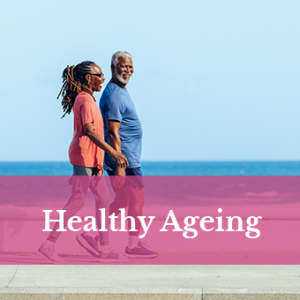Presenter(s):
Prof. Vera Roos, North-West University, South Africa
Mr. Johan Liebenberg, North-West University, South Africa
Abstract
This 2-hour workshop is being proposed against the background of a growing population of older adults and the critical need to address the profound effects of unresolved trauma—trauma that stems from overwhelming shocks that disrupt the brain, immobilise the mind and paralyse the body. By addressing the mind-body connection, this demonstration aims to show how facilitators with no previous body-based training or experience, can support older individuals in developing new neurological pathways and regaining a sense of safety, ultimately enhancing their overall well-being. The proposed workshop will be presented in three parts. Part 1 will briefly overview three key organising constructs related to accumulated trauma in older individuals: the three-dimensionality of time, neurophysiology, and co-regulation. From a topological time perspective, trauma energy undergoes homeomorphic deformation—its essence remains unchanged but manifests in different forms and locations within the body. This process resembles Serres’ concept of folded time, where past experiences are continuously inscribed into the body, and over time, trauma embeds itself in new yet structurally similar ways, altering people’s biological and psychological and disrupting their social equilibrium. The prolonged activation of the hypothalamic-pituitary-adrenal (HPA) axis and the sympathetic nervous system increases the risks associated with cardiovascular disease, metabolic disorders, weakened immunity, and brain ill-health. A history of complex trauma deeply percolates the older human body, disrupting its normal functioning. The body retains the physiological imprint of the trauma, keeping the stored energy invariant.
Traditional talk therapy, rooted in cognitive and linguistic processing, may be insufficient to address deep-seated trauma, chronic stress, or to change fixed action patterns as it often neglects the body’s non-verbal regulatory mechanisms. A paradigm shift toward an “Epic Theory” is necessary to incorporate principles from interpersonal neurobiology, co-regulation, and body-based interventions for more effective management of trauma-related chronic stress in older individuals. Part 2 will involve an older person who volunteers for the demonstration and consents to participate. Ethical considerations will also include asking attendees to treat the information shared in the demonstration as confidential and monitoring the activation levels of both the older participant and attendees. The facilitator will demonstrate how techniques such as posture, proprioception, interoception, spinal alignment, and mindful breathing aligned with anatomical functioning, can create conditions for the embodied experience of safety in the here and now. The demonstration will also include strategies the facilitator uses to create regulation and receptivity as well as how to use the body to mirror the orientation response to the older participant.
In Part 3, attendees and the older person will be invited to reflect and debrief on the demonstration stimulated by the following prompts: 1) A new learning 2) A re-learning 3) A surprise, and 4) Practical application in different contexts.
Bio(s):
Johan Liebenberg holds a master’s degree in clinical psychology and a PhD in psychotherapy. He offers bespoke psychological services to (older) adults and has 35 years of experience in private practice. Johan’s therapeutic approach is grounded in a modern, trans-theoretical paradigm, integrating diverse psychological theories and evidence-based modalities. His ability to perform cutting-edge interventions draws on extensive training in interpersonal neurobiology and attachment theory. He has also attended advanced training in Ego State Therapy, Ericksonian Hypnotherapy, Eye Movement Integration Therapy, Brainspotting, Emotionally Focused Marital Therapy, Somatic Experiencing, Brain Working Recursive Therapy, Biodynamic Craniosacral Therapy, Trauma-Sensitive Yoga Therapy, Integral Somatic Psychology, and Soma Psycho-Sensory Therapy. Johan is a lifelong learner.
Vera Roos is Professor in the Ageing and Generational Dynamics in Africa (AGenDA) programme in the Optentia Research Unit at North-West University, and an Affiliate Research Fellow of the Institute of Population Ageing at the University of Oxford. As a socio-gerontologist, she focuses on relational experiences and on the contributions of older individuals in challenged contexts. Vera presented her research on topics related to enabling interpersonal contexts, loneliness, friendship, and intergenerational relations at national and international conferences, and has published widely, including four edited books. Vera developed the Mmogo-method®, a projective visual data-collection tool to enable research participation despite age, language, or cultural barriers. Findings from this visual method informed the development of self-interactional group Theory (SIGT). Her commitment to promoting the well-being of older people prompted the development of an information and communication eDirectory system, Yabelana, with context-specific information for use on smart and older generation mobile phone devices.

